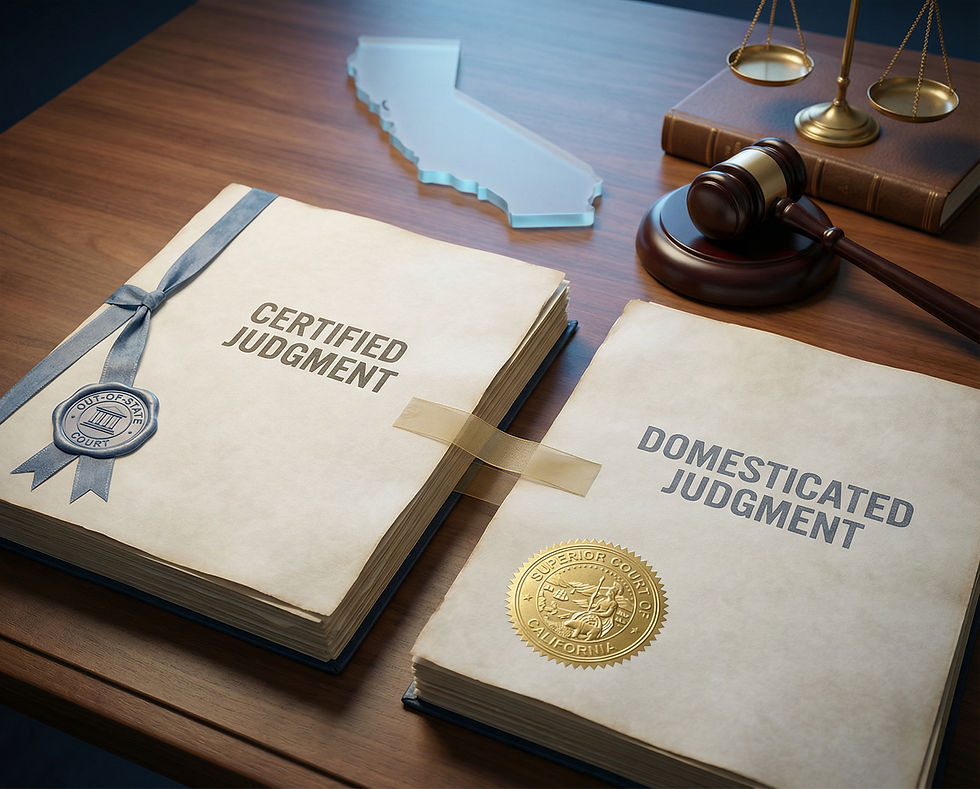How To Avoid These 9 Common Trademark Application Mistakes?
- Yakup Sari, Esq.

- Apr 23, 2025
- 3 min read

Filing a trademark application with the USPTO is an essential step in protecting your brand. But the process can be complex—and even minor mistakes can result in delays, refusals, or loss of trademark rights. Whether you’re a startup founder in Irvine, a business owner in Los Angeles, or expanding your brand across the U.S., understanding and avoiding these common errors can make or break your application.
🔹 1. Not Conducting a Proper Trademark Search
Many applicants skip a thorough trademark search, assuming their mark is unique. But if someone else is already using a similar name, your application could be rejected—or worse, your mark could be challenged later.
✅ How to avoid it:
Use the USPTO’s TESS database to look for identical and similar marks.
Consider visual, phonetic, and conceptual similarities.
Search common law databases, state registries, and domain/social media handles with help from a trademark attorney.
🔹 2. Choosing a Weak or Descriptive Name
Marks like “Best Coffee” or “Cheap Shoes” are often rejected for being too generic or descriptive.
✅ How to avoid it:
Opt for fanciful, arbitrary, or suggestive trademarks.
Choose a name that’s distinctive and memorable—not just descriptive.
🔹 3. Misidentifying Goods and Services
Inaccurate classification of your goods/services can lead to rejection or limit your legal protection.
✅ How to avoid it:
Use the USPTO Trademark ID Manual to correctly identify classifications.
Clearly describe what you offer.
Get legal advice to avoid common missteps.
🔹 4. Listing the Wrong Trademark Owner
Filing under an incorrect name—like an individual instead of a business entity—can cause problems down the road.
✅ How to avoid it:
Make sure the legal owner of the trademark is properly identified.
Update ownership details if your structure changes after filing.
🔹 5. Overlooking Related Classes
Even if no one is using your exact name in your class, similar marks in related classes could still pose legal risks.
✅ How to avoid it:
Check neighboring classes (e.g., Class 25 for clothing and Class 35 for online retail).
Review potential conflicts with an attorney familiar with USPTO rules.
🔹 6. Misusing ™ or ® Symbols
Using the ® symbol without federal registration is illegal and can result in fines.
✅ How to avoid it:
Use ™ while your mark is pending or unregistered.
Only use ® once your mark is officially registered.
🔹 7. Missing Deadlines
Failure to respond to USPTO actions or renew your mark can lead to abandonment.
✅ How to avoid it:
Monitor all USPTO deadlines and respond promptly.
Renew your trademark between years 5–6 and every 10 years thereafter.
Hire legal counsel to help manage filings and reminders.
🔹 8. Ignoring International Registration
Planning to expand abroad? If you don’t secure protection in foreign markets, others may register your name first.
✅ How to avoid it:
File through the Madrid Protocol or apply directly in target countries.
Run clearance searches in international jurisdictions before launching globally.
🔹 9. Filing Without Legal Guidance
Filing on your own may seem cost-effective—but the long-term risks often outweigh the savings.
✅ How to avoid it:
Work with a trademark attorney to ensure your application is complete and accurate.
Avoid costly rejections and oppositions before they happen.
⚖️ Secure Your Brand with Confidence
Avoiding these common pitfalls increases your chances of approval and protects your business long-term.
At Sari Law Firm, based in Orange County, California, we provide personalized legal support to businesses in Santa Ana, Irvine, Los Angeles, and throughout the U.S. Let us guide you through every step of the trademark registration process.
📞 Call: (949) 426-5071
📩 Email: info@sarilaw.us
FAQ – Frequently Asked Questions

1. What is the most common reason trademark applications are rejected?
The most frequent reason is conflict with an existing registered mark or descriptive wording that lacks distinctiveness.
2. Can I use the ® symbol if my application is pending?
No. You can only use ® once your trademark is officially registered. Until then, use the ™ symbol.
3. Do I need to register my trademark internationally?
If you plan to expand abroad, yes. Use the Madrid Protocol or direct national filings in each target country to protect your rights.
4. What if I file my trademark under my personal name instead of my business?
That could create legal and logistical issues. The trademark should be filed under the entity that owns and uses it.
5. Can Sari Law Firm help prevent these mistakes?
Absolutely. We help clients across the U.S., including those in Irvine, Orange County, Santa Ana, and beyond, file error-free trademark applications.




Comments